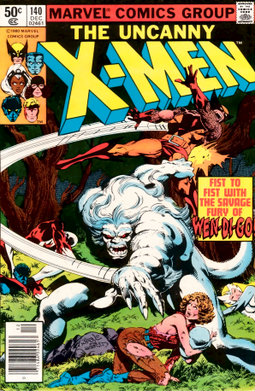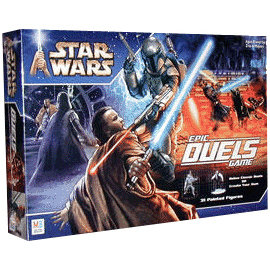
A fandom is a subculture composed of fans characterized by a feeling of camaraderie with others who share a common interest. Fans typically are interested in even minor details of the objects of their fandom and spend a significant portion of their time and energy involved with their interest, often as a part of a social network with particular practices, differentiating fandom-affiliated people from those with only a casual interest.

A player character is a fictional character in a video game or tabletop role-playing game whose actions are controlled by a player rather than the rules of the game. The characters that are not controlled by a player are called non-player characters (NPCs). The actions of non-player characters are typically handled by the game itself in video games, or according to rules followed by a gamemaster refereeing tabletop role-playing games. The player character functions as a fictional, alternate body for the player controlling the character.

The DC Universe (DCU) is the shared universe in which most stories in American comic book titles published by DC Comics take place. In context, the term "DC Universe" usually refers to the main DC continuity. It contains such well-known superheroes as Batman, Superman, Wonder Woman, the Flash, Green Lantern, Aquaman, Green Arrow, Shazam, Martian Manhunter, and Cyborg; as well as teams such as the Justice League, the Justice Society of America, the Suicide Squad, Doom Patrol, and the Teen Titans. It also contains well-known supervillains, including the Joker, Lex Luthor, the Cheetah, the Reverse-Flash, Sinestro, Black Manta, Deathstroke, Black Adam, Brainiac, and Darkseid.
Bionicle, stylized as BIONICLE in all caps, is a line of Lego construction toys, marketed primarily towards 8-to-16-year-olds. The line originally launched in 2001 as a subsidiary of Lego's Technic series. Over the following decade, it became one of Lego's biggest-selling properties, turning into a franchise and being one of the many factors in saving the company from its financial crisis of the late 1990s. Despite a planned twenty-year tenure, the theme was discontinued in 2010, but was rebooted in 2015 for a further two years.

The Battle for Wesnoth is a free and open-source turn-based strategy video game with a high fantasy setting, designed by Australian-American developer David White and first released in June 2003. In Wesnoth, the player controls a particular faction/race and attempts to build a powerful army by controlling villages and defeating enemies for experience. The game is loosely based on the Sega Genesis games Master of Monsters and Warsong.
An online text-based role playing game is a role-playing game played online using a solely text-based interface. Online text-based role playing games date to 1978, with the creation of MUD1, which began the MUD heritage that culminates in today's MMORPGs. Some online-text based role playing games are video games, but some are organized and played entirely by humans through text-based communication. Over the years, games have used TELNET, internet forums, IRC, email and social networking websites as their media.

The Wendigo is a fictional monster appearing in American comic books published by Marvel Comics. The Marvel character is based on the Wendigo legend of the Algonquian peoples. The monster first appeared in The Incredible Hulk #162, created by writer Steve Englehart and artist Herb Trimpe, fighting the Incredible Hulk.

DC vs. Marvel is a comic book miniseries intercompany crossover published by DC Comics and Marvel Comics from February to May 1996. Each company would publish two issues of the miniseries, thus the title difference between issues #1 and 4 as DC vs. Marvel Comics from DC and issues #2–3 from Marvel as Marvel Comics vs. DC. The miniseries was written by Ron Marz and Peter David, with art by Dan Jurgens and Claudio Castellini.

WWE SmackDown! vs. Raw 2006 is a professional wrestling video game and developed by Yuke's that was released on the PlayStation 2 and PlayStation Portable by THQ in 2005. It is part of the WWE SmackDown vs. Raw video game series based on the professional wrestling promotion World Wrestling Entertainment (WWE), and is the successor to the 2004 game of the same name. SmackDown! vs. Raw 2006 was also the first game in the series to be released on PlayStation Portable and the last game in the SmackDown!/SmackDown! vs. Raw series that was PlayStation exclusive.

The Star Wars Epic Duels board game was released by Hasbro in 2002. It was designed for ages 8 and up, and for 2-6 players. The main designer of the game was Craig Van Ness, with assistance from Rob Daviau. It is out of print.

Dredmund Druid is a fictional character appearing in American comic books published by Marvel Comics.

Urban Rivals is a massively multi-player online virtual trading card game. The game features over 2,000 characters with varying rarities and abilities to discover, collect and level up by fighting live against players from all over the world. It also has an active market, where players can buy cards from other players or put their own cards up for sale.

Heroes Wiki was a wiki-powered reference site for NBC's science fiction drama Heroes. Launched on October 10, 2006, the site uses MediaWiki software to maintain a user-created database of information. Heroes Wiki was supported by revenue from advertising, part of which is donated to various charities. As of June 28, 2010, the site contained over 5,500 articles created and edited by approximately 9,400 registered users, with over 157 million page views.

Deadliest Warrior was an American television program in which information on historical or modern warriors and their weapons are used to determine which of them is the "deadliest" based upon tests performed during each episode. The show was characterized by its use of data compiled in creating a dramatization of the warriors' battle to the death. The show ran for three seasons.

Whiskey Media was an American online media company founded independently by CNET co-founder Shelby Bonnie in 2008. It was the parent company of Tested, Screened, and Anime Vice, and the former parent company of Giant Bomb and Comic Vine. Whiskey Media websites were wiki community based, while maintaining an editorial staff. The company's target demographic was focused primarily on males between 10 and 30. The name "Whiskey Media" is a reference to a Kentucky distillery that was owned by the family of Shelby Bonnie before prohibition. Whiskey Media operated in San Francisco, California, after previously being located in Sausalito. On March 15, 2012, Whiskey Media was acquired by Lloyd Braun and Gail Berman's BermanBraun along with Tested, Screened, and Anime Vice while Giant Bomb and Comic Vine were bought separately by CBS Interactive.

Marvel vs. Capcom 3: Fate of Two Worlds is a crossover fighting video game developed by Capcom in collaboration with Eighting. The game features characters from both Capcom's video game franchises and comic book series published by Marvel Comics. It was released for the PlayStation 3 and Xbox 360 consoles in February 2011. It is the sequel to 2000's Marvel vs. Capcom 2: New Age of Heroes, the fifth installment of the Marvel vs. Capcom franchise, and the first to use three-dimensional character models instead of two-dimensional sprites.

Chivalry: Medieval Warfare is a multiplayer-focused hack and slash developed by Torn Banner Studios as their first commercial title. The game is set in a fictional setting. On September 20, 2012, a trailer was released which set the release date to October 16, 2012. The developers had confirmed that the game would be PC exclusive initially, but in October 2014, they confirmed that the game would be coming to PlayStation 3 and Xbox 360 in December 2014. A standalone expansion pack called Chivalry: Deadliest Warrior was announced on August 23, 2013, as a tie-in for the television series Deadliest Warrior. It was released on November 14, 2013.

Infinite Crisis was a 2015 multiplayer online battle arena (MOBA) video game based on the fictional universe of DC Comics, developed by Turbine and published by Warner Bros. Interactive Entertainment, loosely based on the comic book series of the same name. The game featured two squads of DC heroes and villains as they competed in combats across multiple destructive battlefields featuring in-game changing catastrophic events. It was a free-to-play game that was supported by micro-transactions.

J-Stars Victory VS is a crossover fighting video game that combines the universes of several Weekly Shōnen Jump manga series, including former series and some that have been transferred to other magazines. It was released in Japan by Bandai Namco Entertainment on March 19, 2014 for the PlayStation 3 and PlayStation Vita in celebration of Weekly Shōnen Jump's 45th anniversary. It was re-released for western territories as J-Stars Victory VS+ for the PlayStation 4, PlayStation 3, and PlayStation Vita, with an additional Arcade Mode for the international release. It was released in Europe on June 26, 2015 and in North America on June 30, 2015. A follow-up game, Jump Force, released on February 15, 2019 to tie in with the 50th anniversary of Weekly Shōnen Jump.

Star Wars: Galaxy of Heroes is a mobile collectible RPG game. The game received a soft launch in Australia during October 2015, and was formally released on November 24, 2015.


















